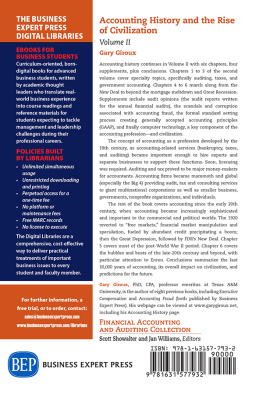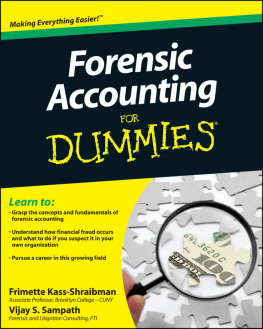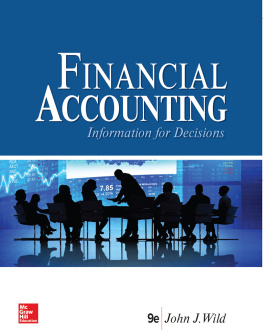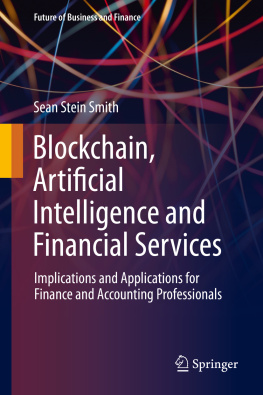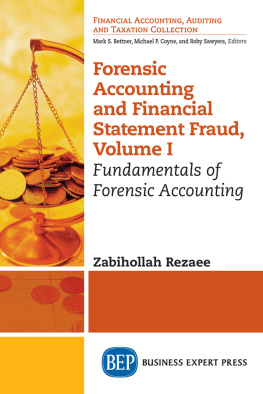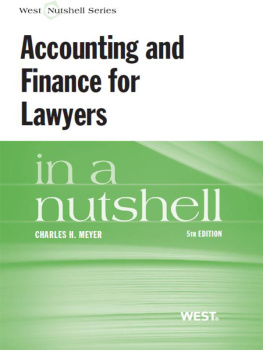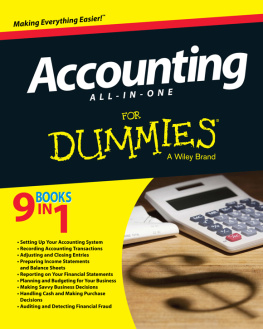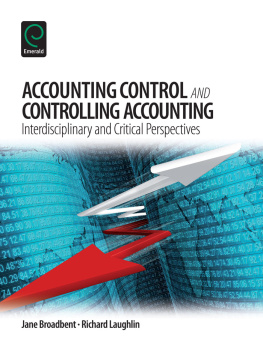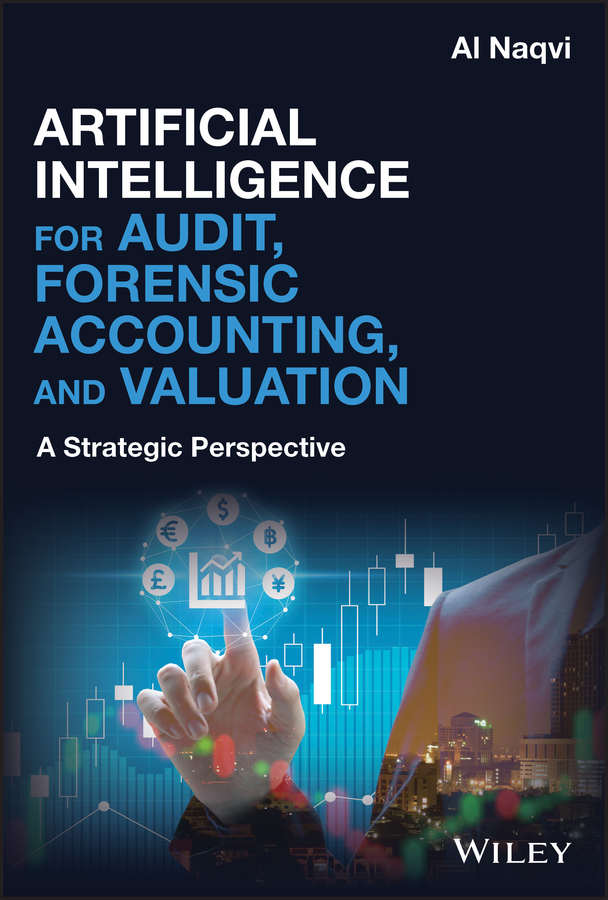
Table of Contents
List of Tables
- Chapter 7
- Chapter 8
- Chapter 15
List of Illustrations
- Chapter 1
- Chapter 2
- Chapter 3
- Chapter 4
- Chapter 5
- Chapter 6
- Chapter 7
- Chapter 8
- Chapter 9
- Chapter 10
- Chapter 11
- FIGURE 11.1 The Audit Automation
- Chapter 12
- Chapter 14
- Chapter 15
- Chapter 17
- Chapter 18
Guide
Pages
Founded in 1807, John Wiley & Sons is the oldest independent publishing company in the United States. With offices in North America, Europe, Asia, and Australia, Wiley is globally committed to developing and marketing print and electronic products and services for our customers' professional and personal knowledge and understanding.
The Wiley Corporate F&A series provides information, tools, and insights to corporate professionals responsible for issues affecting the profitability of their company, from accounting and finance to internal controls and performance management.
Artificial Intelligence for Audit, Forensic Accounting, and Valuation
A Strategic Perspective
AL NAQVI

Copyright 2020 by John Wiley and Sons, Inc. All rights reserved.
Published by John Wiley & Sons, Inc., Hoboken, New Jersey.
Published simultaneously in Canada.
No part of this publication may be reproduced, stored in a retrieval system, or transmitted in any form or by any means, electronic, mechanical, photocopying, recording, scanning, or otherwise, except as permitted under Section 107 or 108 of the 1976 United States Copyright Act, without either the prior written permission of the Publisher, or authorization through payment of the appropriate percopy fee to the Copyright Clearance Center, Inc., 222 Rosewood Drive, Danvers, MA 01923, (978) 7508400, fax (978) 6468600, or on the Web at www.copyright.com. Requests to the Publisher for permission should be addressed to the Permissions Department, John Wiley & Sons, Inc., 111 River Street, Hoboken, NJ 07030, (201) 7486011, fax (201) 7486008, or online at www.wiley.com/go/permissions.
Limit of Liability/Disclaimer of Warranty: While the publisher and author have used their best efforts in preparing this book, they make no representations or warranties with respect to the accuracy or completeness of the contents of this book and specifically disclaim any implied warranties of merchantability or fitness for a particular purpose. No warranty may be created or extended by sales representatives or written sales materials. The advice and strategies contained herein may not be suitable for your situation. You should consult with a professional where appropriate. Neither the publisher nor author shall be liable for any loss of profit or any other commercial damages, including but not limited to special, incidental, consequential, or other damages.
For general information on our other products and services or for technical support, please contact our Customer Care Department within the United States at (800) 7622974, outside the United States at (317) 5723993, or fax (317) 5724002.
Wiley publishes in a variety of print and electronic formats and by printondemand. Some material included with standard print versions of this book may not be included in ebooks or in printondemand. If this book refers to media such as a CD or DVD that is not included in the version you purchased, you may download this material at http://booksupport.wiley.com. For more information about Wiley products, visit www.wiley.com.
Library of Congress CataloginginPublication Data
Names: Naqvi, Ali S., 1968 author.
Title: Artificial intelligence for audit, forensic accounting, and valuation : a strategic perspective / Ali S. Naqvi.
Description: First edition. | Hoboken : Wiley, 2020. | Includes index.
Identifiers: LCCN 2020021960 (print) | LCCN 2020021961 (ebook) | ISBN 9781119601883 (cloth) | ISBN 9781119601913 (adobe pdf) | ISBN 9781119601937 (epub)
Subjects: LCSH: AuditingData processing. | Forensic accounting. | Valuation. | Artificial intelligence.
Classification: LCC HF5667.12 .N37 2020 (print) | LCC HF5667.12 (ebook) | DDC 658.0285/63dc23
LC record available at https://lccn.loc.gov/2020021960
LC ebook record available at https://lccn.loc.gov/2020021961
Cover Design: Wiley
Cover Image: Dragon Nipitpon Singad/EyeEm/Getty Images
Dedicated to
My father, D. H. Naqvi (19352018) the very first accountant/auditor in my life
Preface
AUDITORS AND ASSURANCE PROFESSIONALS: Do you know how to build a comprehensive plan to achieve intelligent automation of your audit function? More importantly, at personal and professional levels, are you ready for the greatest transformation in the human history?
An artificial intelligence revolution is sweeping through the world. Auditors and forensic accountants in firms of all sizes and types are trying to understand what it means for them. Many want to explore how to build plans for total intelligent automation to move their companies forward into the new AI economy. Many have recognized the imminent need for augmenting skills because of increasing automation. The recognition that the AI economy will be led by business professionals is finally sinking in. But auditors, accountants, finance professionals, and forensic accountants must develop a deeper and more pragmatic understanding of the AI revolution. They must do it fast before the opportunity passes them by. This book will be your guide to improve and implement intelligent automation in your firms and to do it in a structured, efficient, and disciplined way.
Artificial intelligence and audit are not strangers to each other. For decades researchers and practitioners have been trying to marry the two. Audit, if automated, can improve the audit quality and reduce its cost. On one hand it will improve the audit efficiency for companies; on the other hand it will enhance the trust and confidence of investors and other stakeholders who rely upon audited financial statements.
While the research and reports on artificial intelligencecentric audit automation have been plenty, there has not been a structured model of endtoend audit automation. Sporadic collection of papers on audit does not translate into a workable audit model. Neither does haphazard capability building. In some ways, it was never deemed important to build a comprehensive framework from the perspective of how to build an audit automation plan for a company. After all, up until very recent times, the technology was not advanced enough to even begin to think about a fully automated audit. It was no different than the application of artificial intelligence in a car or an airplane. Automating some functional parts of a car's or an airplane's operation is one thing, creating an autonomous car or an autonomous drone another. But just as advances in technology have now given us the comfort to envision putting autonomous vehicles on the road and autonomous drones in the sky, the time for autonomous and continuous audit has come.
However, automating audit does not mean eliminating human work. If anything, it means eliminating the mistakes and errors, whether intentional or not, of the human work. Thus, a structured model of intelligent automation of audit will incorporate the automation of both cognitive and physical human work and will focus on enhancing the human ability to function far beyond what normal human capacities allow humans to do. Lifting the human constraints is not simply a function of enhanced computational efficiency. It results from embedding intelligence in machines.
Next page


